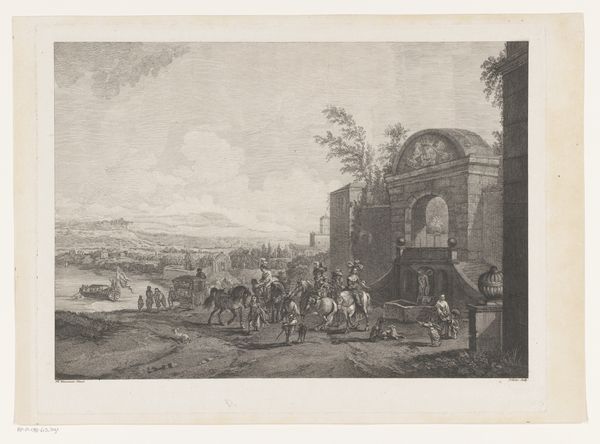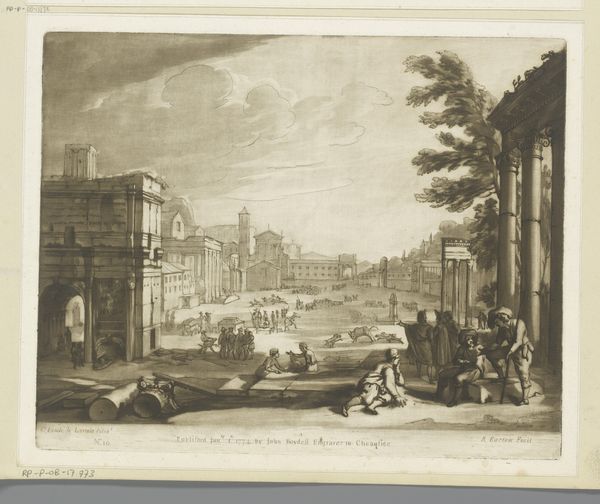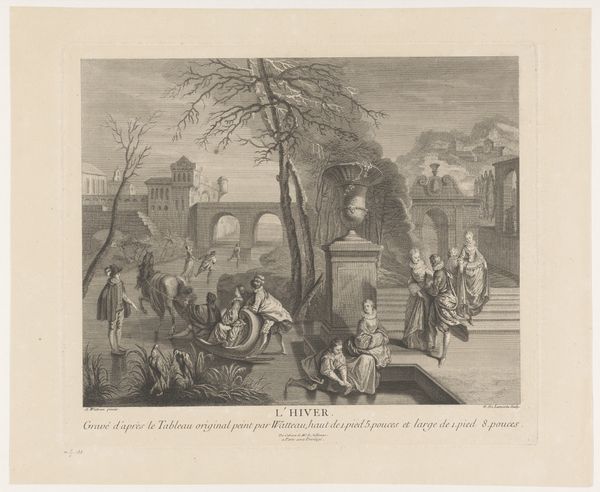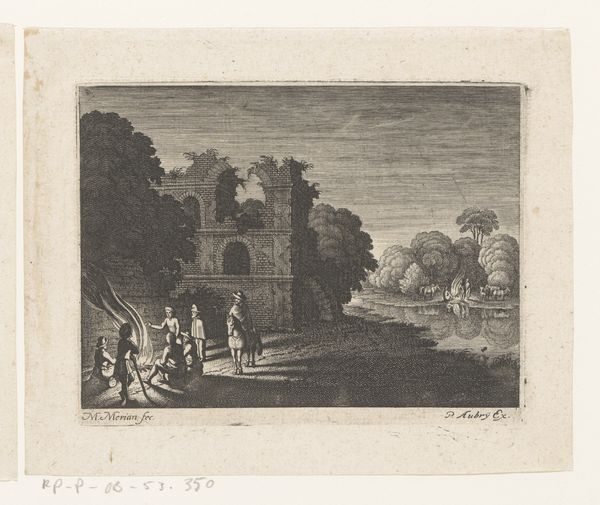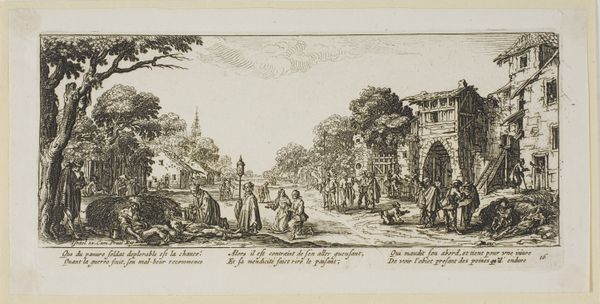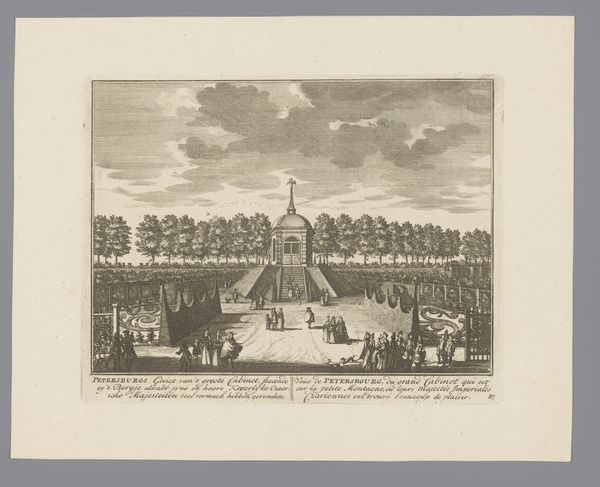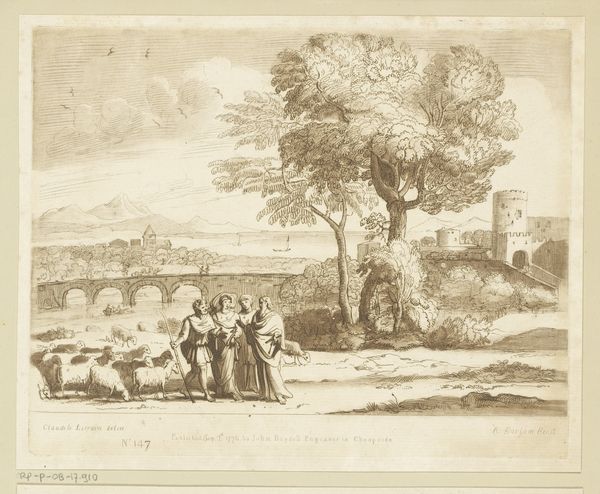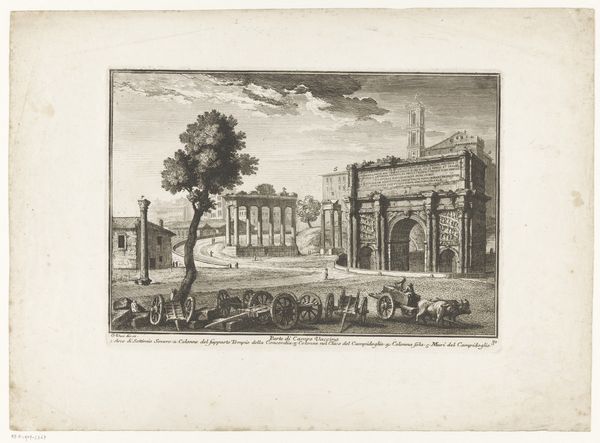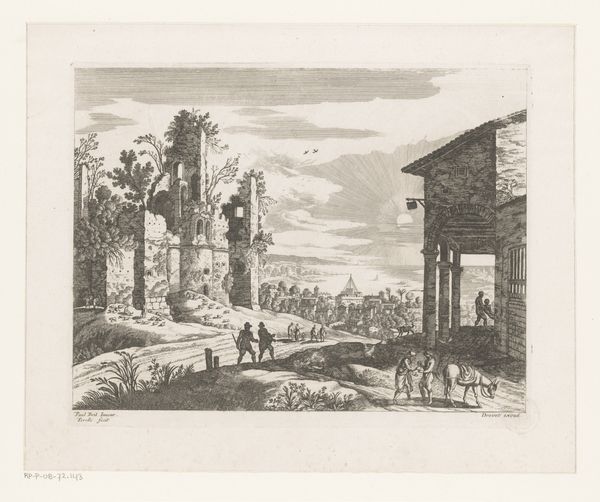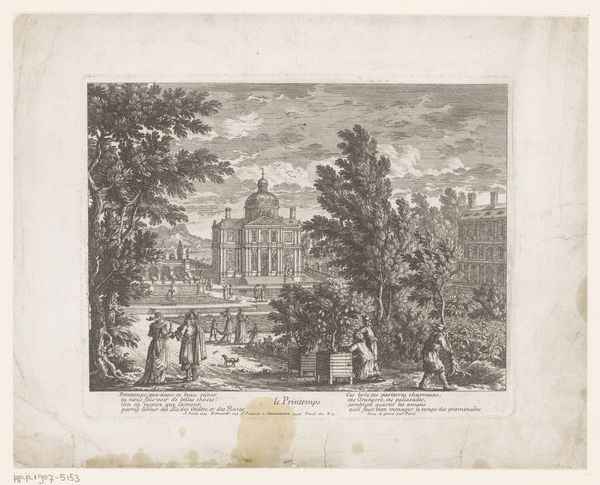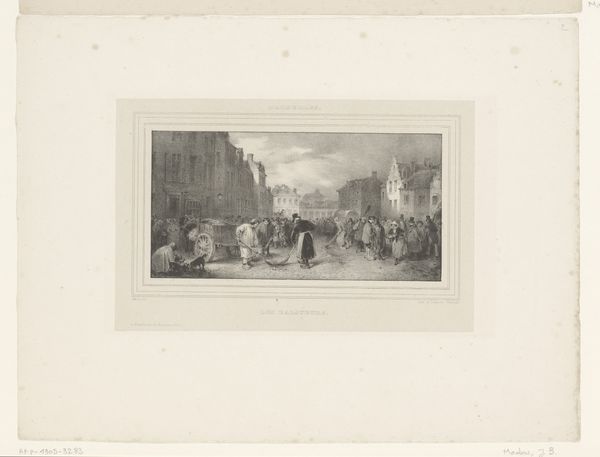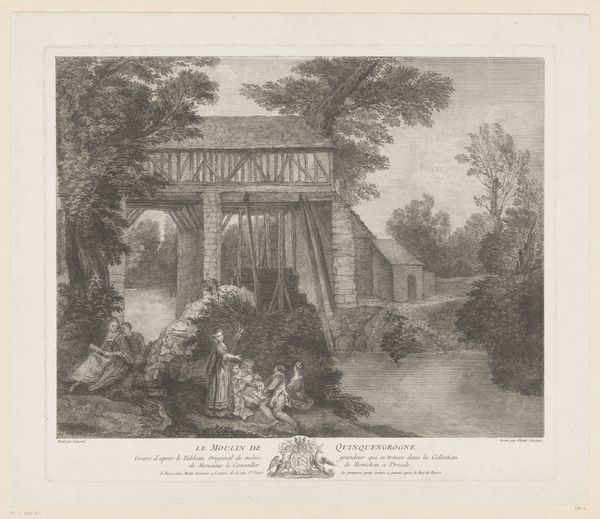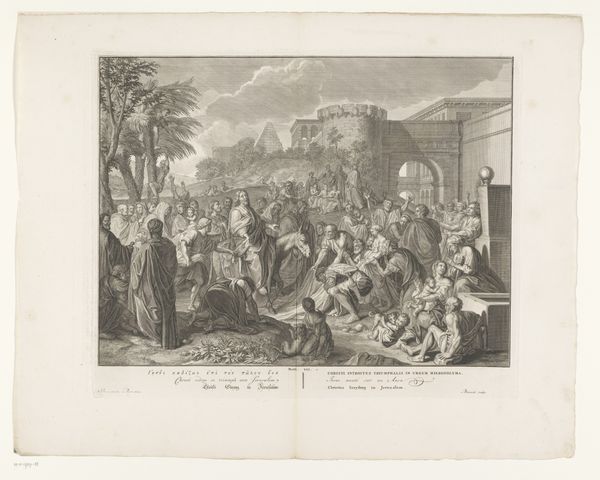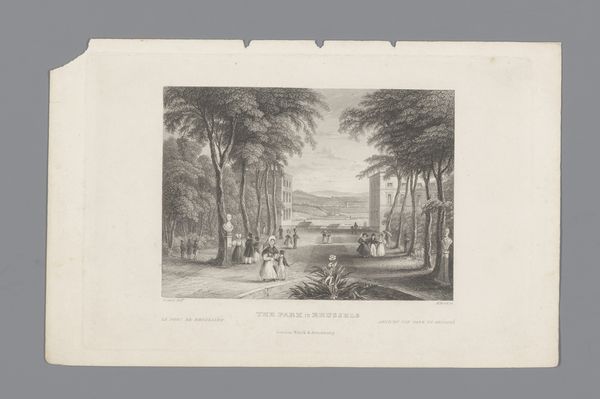
Dimensions: height 174 mm, width 224 mm
Copyright: Rijks Museum: Open Domain
Daniel Nikolaus Chodowiecki made this line engraving called ‘Goodness of God’ at an unknown date. Here we see the values of the late enlightenment, when philosophers, scientists, and artists began to question traditional assumptions about religion and ethics, viewing social welfare as intertwined with religious belief. This work, now in the Rijksmuseum, reflects the cultural milieu of 18th-century Europe, where debates about reason, morality, and the role of religion in public life were intensifying. Chodowiecki, a German artist of Huguenot descent, situated himself in the middle of these debates. The artist uses visual codes to create meaning. The garden setting suggests an ordered, rational world, reflecting the Enlightenment's emphasis on reason and control over nature. The contrast between the well-dressed figures enjoying leisure and the beggars at the garden's edge subtly critiques social inequalities, hinting at the need for charity and social reform. Understanding this engraving requires us to research social and institutional history, asking what the public role of art might be in the 18th century.
Comments
No comments
Be the first to comment and join the conversation on the ultimate creative platform.
